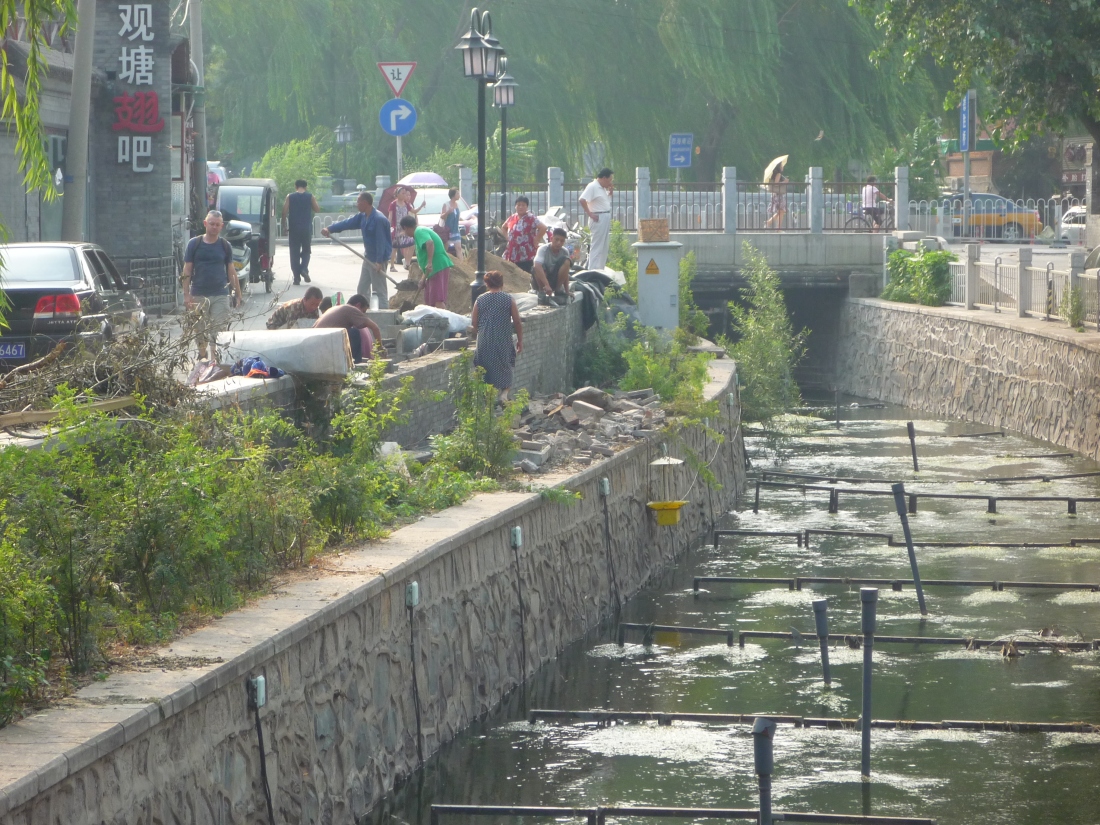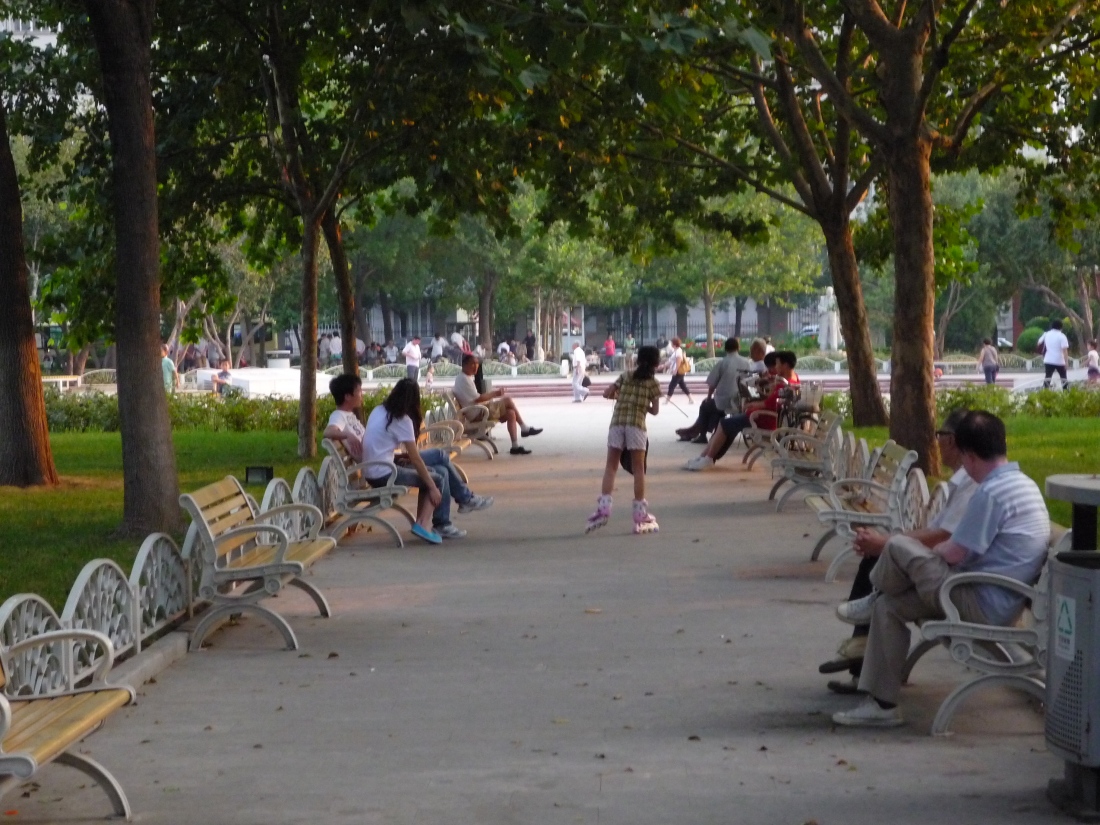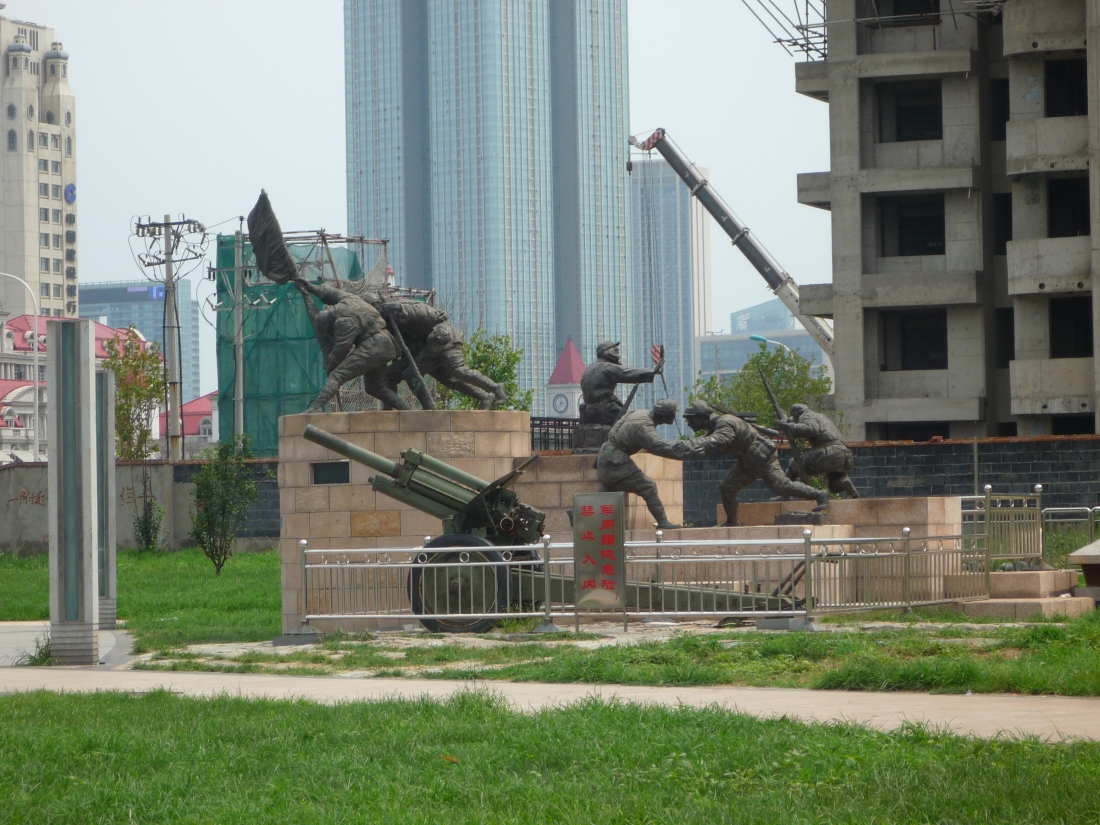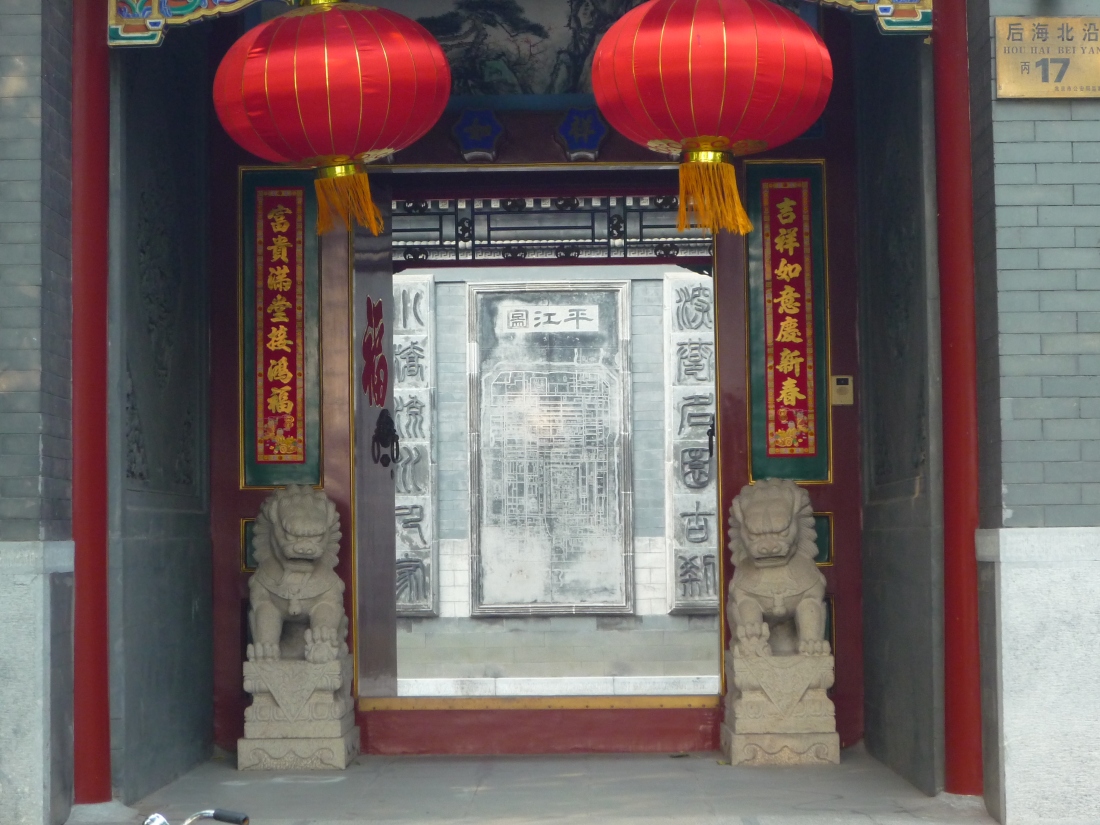My friend Niklas is obsessed with dialects. During the time we spent together in Northern China, he kept saying, excited ‘this is the real Tianjin voice’, or – even better – ‘a real Beijinger’. He’s a musician, with a fine ear for language; and these were sounds he’d never heard live before.
Niklas comes from a samll town close to Suzhou, in Jiangsu province, not far from Shanghai where he’s now finishing a Master’s in German. As a result, he can speak various forms of the Wu dialect – Shanghai, Suzhou, and his homtown’s. He told me that all Southerners are at least bilingual like him, able to speak their own dialect, and official Mandarin. This is a key distinction between North and South. On the one hand, a multilingual South, with many competing cultural centres – Suzhou, Hangzhou, Shanghai, Guanzhou, Xiamen, Hong Kong… versus a monocultural North, clearly dominated by Beijing.
Of course, he’s a true southerner, with a biased vision. Still, Beijing is the seat of Chinese power, and has been so for a while. Since the capital moved here, four centuries ago, the best and brightest have come from all provinces to pass exams and work here, where the court of power was. For that reason too, Beijing has been a multicultural city for centuries, with a mix of old Beijingers, northerners moving to ‘the big city’, bright young things from all over China seeking success in the capital, and international investors or diplomats.
Countries often have competing cities: New York and LA, Madrid and Barcelona, Melbourne and Sydney. The traditional Chinese opposition is between Beijing and Shanghai – but these two cities also came to represent two Chinas. As always, labels attach: political versus commercial; unruly versus organised; cultured versus materialist; barbarian versus delicate; and others, along the same lines.
I once articulated the distinction in more concrete terms with Aaron. I was complaining, again, about the bad service in Tianjin; but also trying to find ways it could be improved it, by understanding the cultural causes. I was putting together theories, when Aaron simply said ‘you would actually get better service in the south’. For instance, when you go for dinner late, or early, southerners will serve you, whereas in the North, they just send you away. Then he added ‘they like money more, down South. Here, they just want enjoy life.’
I ventured an hypothesis. Traditionally, the Southern regions around the mouth of the YangTse river have been the richest in China. They still are, and Shanghai enthusiasts explain how Beijing will never be the real centre of China, because its hinterland is poor, whereas Shanghai has Hangzhou and Suzhou, Nanjing and Ningbo, rich cities, and a rich countryside, all arond it. Yet these regions are not the centre of power. But it may be the result of a wise choice. Chinese history can be read as a series of invasions from the North-West. Each time, the barbarian tribes assimilated, settled – and became the guardians of their new country, protecting it from other invasions; untill a new wave of barbarians came, and the cycle started again. All of this happened in the North. Meanwhile, the rich Southern cities could focus on their own business – happy to pay for these idle Northerners to keep the outside worlds at bay, and absorb shocks for them.
In other words, Southerners are the traditional workers; whereas Northerners are the soldiers – and like proper soldiers, they act lazy, loud, and dirty, with no great respect for written rules, but obedience to the man in command and its loud orders. This is why everything in the North is confused and messy, and why you can only get things by shouting and feigning anger in Tianjin and Beijing. The difference in service quality between North and South China can be read as an expression of the cultural difference between an imperial military culture, and an erudite commercial culture. I was happy with my little structural interpretation.
Aaron agreed – politely – but then proposed another, more Hegelian interpretation. The Southern regions – this time he meant Guangdong, Fujian and Zhejiang – were traditionally the poorest in the country. For that reason, people there had to work harder. And they got used to it, then started to become richer. Hegelian dialectics all over. I followed his train of thought, saying that in the south, you work more, but life is easier, because the system works with you, and life is more organised. Aaron – who spent some time there studying – disagreed. The power of money has its own downsides. Things do work better, but these rich people have their privileges, and its really hard in the south if you don’t have money. Images of Hong Kong movies came to mind, which I contrasted with my Beijing impressions.
Which got me thinking again about lazy northerners, and their loud affect, their theatrical bouts of anger, and their way of seating on the street, simply getting on with their lives. Maybe there is virtue, somehow, in this mild idleness. I do have a few Beijing enthusiasts among my friends. Surprisingly, one said Beijing was the most relaxing of all big capitals. If you follow the Northern way of life – not running after profit and focusin on simple daily pleasures – it can be a lovely place to stay.
I thought, he may be right. Maybe, for the contemplating foreigner, curious to know more about ‘Chinese culture’, Beijing is a better place than Shangha. I even thought, maybe, Beijing is the place where friendship – that most eminent of martial virtues – can be formed and nurtured. One day, when we were walking around the Hutongs, Juliette told that Beijing is a great place if you know people, and do things with them, or go to parties. ‘Beijing is great when you have friends’, she reflected, then adding ‘but then it’s true everywere, right?’
Right, but is it possible everywhere – or could Beijing, and North China, be among these rare places where the balance is such that you can actually form and keep friendships? Where doors – and people – eventually, open?









